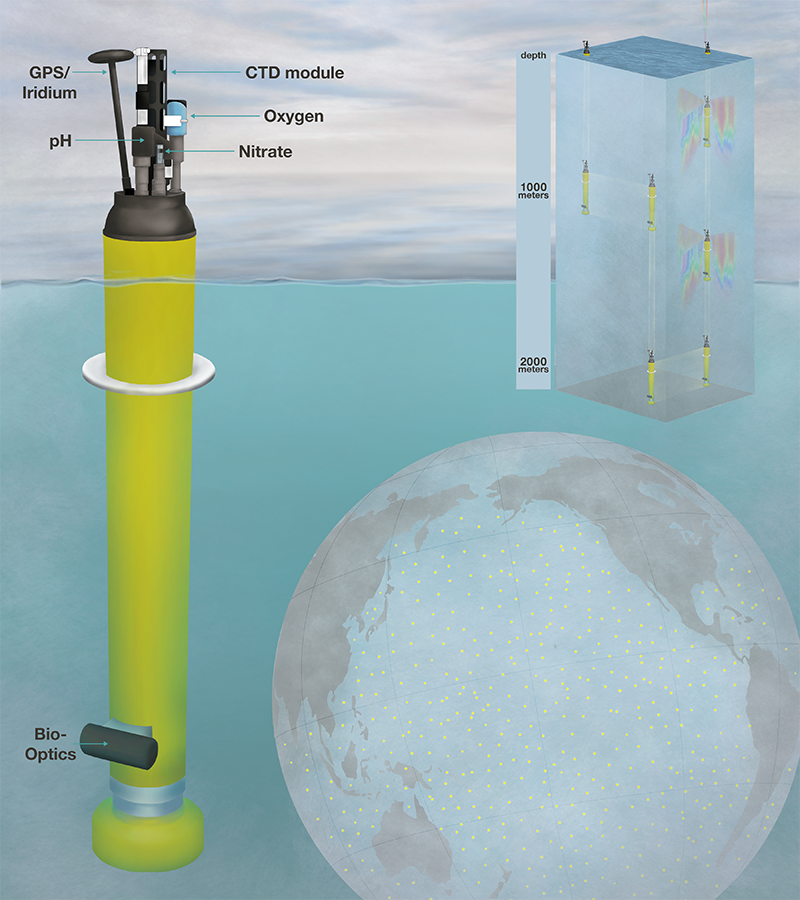 Diagram showing a BGC Argo float. Image source: eos.org
Diagram showing a BGC Argo float. Image source: eos.org
How will climate change alter the marine food web and ocean carbon cycle? We can start to answer this important question by measuring variation in marine net community production (NCP) and its effects on the biological carbon pump (BCP). Both NCP and the BCP vary over both large and small scales of time and space, and that makes them challenging to measure. What measurements we have are sparse because traditional ship-based sampling methods are both expensive and labour-intensive. Autonomous platforms offer improved sampling in time and space. As part of this project, we will deploy new biogeochemical (or BGC) Argo floats and moored samplers and instrumentation (SeaCycler package) in the Northwest Atlantic Ocean. The BGC Argo floats will have multiple sensors to monitor variation in the BCP and associated biological, chemical, and physical conditions. We are also developing new Lab-on-Chip (LoC) nutrient sensors to expand our ability to get high resolution multi-nutrient observations in our region.